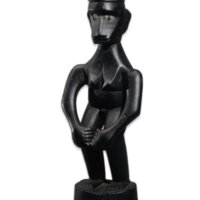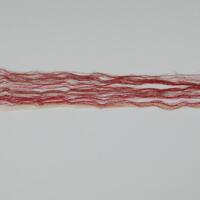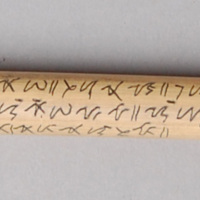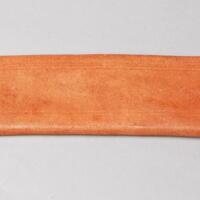Statuette (Immaculada Concepcion )
Text
Immaculada Concepcion
Share this
Map British Museum
Metadata
Date
17thC
Identifier
1856,0623.157
Origin
Made in: Portuguese India (possibly)
Asia: South Asia: India: Portuguese India
Made in: Philippines (possibly)
Asia: Southeast Asia: Philippines
Asia: South Asia: India: Portuguese India
Made in: Philippines (possibly)
Asia: Southeast Asia: Philippines
Materials
ivory
Technique: carved
Technique: carved
Physical Dimensions
Height: 11.70 centimetres
Provenance
Purchased from: Rev William Maskell
Rev William Maskell
primary name: Maskell, William
Details
individual; academic/intellectual; cleric/religious official; British; Male
Life dates
1814-1890
Biography
Ecclesiastical historian, antiquary and member of the Burlington Fine Arts Club.
Bibliography
DNB
Rev William Maskell
primary name: Maskell, William
Details
individual; academic/intellectual; cleric/religious official; British; Male
Life dates
1814-1890
Biography
Ecclesiastical historian, antiquary and member of the Burlington Fine Arts Club.
Bibliography
DNB
Acquisition Date
1856
Short description
Condition:
https://www.britishmuseum.org/collection/term/110061:1
https://www.britishmuseum.org/collection/term/110061:1
Related Object
Related objects in the same collection:
https://www.britishmuseum.org/collection/term/BIOG126025
https://www.britishmuseum.org/collection/term/BIOG126025
Display status
Not on display
References
Dalton 1909 / Catalogue of the Ivory Carvings of the Christian Era with Examples of Mohammedan Art and Carvings in Bone in the Department of British and Mediaeval Antiquities and Ethnography of the British Museum (536)
Official Website
Collection
Source
Record accessed in January 2021
Copied without revision
Copied without revision
Cite this Page
“Statuette (Immaculada Concepcion ),” Mapping Philippine Material Culture, accessed April 25, 2024, https://philippinestudies.uk/mapping/items/show/3968.
Geolocation
Sensitive Content
Mapping Philippine Material Culture collates digital material from institutions, and some of this material is inherently colonial and contains words, terms and phrases that are inaccurate, derogatory and harmful towards Filipino and Filipino diasporic communities. Catalogue transcriptions, book titles, exhibition titles and museum titles may contain harmful terms. We recognise the potential for the material to cause physical and mental distress as well as evoke strong emotions. Owing to the scale of the collection’s data, a process to implement sensitive-content warnings in the displayed data is still incomplete. The material within the catalogue does not represent Mapping Philippine Material Culture’s views. Mapping Philippine Material Culture maintains a strong anti-colonial, anti-racist position and affirms its support for centring the humanity of historically marginalised and disenfranchised communities.
Facebook Twitter



